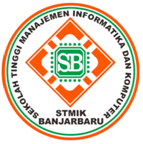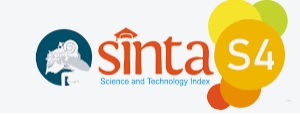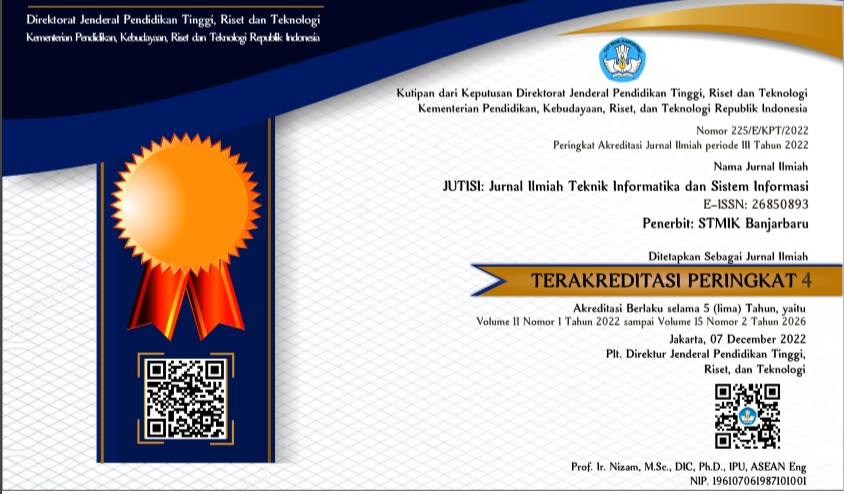Analisa Dampak Game Mobile Legends Terhadap Prestasi Akademik Mahasiswa Menggunakan Metode Fuzzy Logic
Abstract
The purpose of this research is to analyze how the academic achievement of students at UIN SUSKA Riau is influenced by playing the Mobile Legends game. Mobile games such as Mobile Legends are increasingly popular among college students in the digital era. Nonetheless, there are concerns that the game could affect the time and center that should be allocated to scientific investigations. This study uses three input variables: benefits, risk and GPA with the output having an impact on academic achievement. Fuzzy Mamdani can be usede as a method in determining student academic achievement in this study using MATLAP. The results of the study also show that the Mobile Legends game makes academic achievement tend to be worse for students.
Keywords: Fuzzy Mamdani Logic; Academic Achievement; Student; MATLAP
Â
Abstrak
Tujuan yang ingin di capai dalam penelitian ini adalah untuk mengetahui bagaimana pengaruh bermain game online Mobile Legends terhadap prestasi akademik mahasiswa di UIN SUSKA Riau. Di era digital ini, game mobile seperti Mobile Legends semakin populer di kalangan mahasiswa. Bagaimanapun, ada kekhawatiran bahwa permainan dapat memengaruhi waktu dan fokus yang harus dialokasikan untuk pemeriksaan logika. Tiga variabel input digunakan dalam penelitian ini: kelebihan, kekurangan, dan IPK, yang hasilnya mempengaruhi prestasi akademik. Dalam penelitian ini, MATLAP dapat digunakan untuk menentukan prestasi akademik siswa dengan menggunakan fuzzy Mamdani. Studi tersebut juga mengungkapkan bahwa prestasi akademik siswa cenderung menurun akibat permainan Mobile Legends.
Â
Keywords
References
S. Maisyaroh, … T. T.-… T. I. & I., and undefined 2020, “Analisis Pengaruh Kecanduan Game Online Terhadap Perilaku Siswa Smpn 4 Pekanbaru,†Journal.Unilak.Ac.Id, vol. 1, no. 1, pp. 251–257, 2020, [Online]. Available: http://journal.unilak.ac.id/index.php/ Semaster/article/view/6134
G. L. Ondang, B. J. Mokalu, and S. Y. V. I. Goni, “Dampak Game Online Terhadap Motivasi Belajar Mahasiswa Jurusan Sosiologi Fispol Unsrat,†J. Holistik, vol. 13, no. 2, pp. 2, 2020, [Online]. Available: file:///C:/Users/ASUS Mc/Downloads/29290-60536-1-SM.pdf
M. Abrori and A. H. Primahayu, “Aplikasi Logika Fuzzy Metode Mamdani Dalam Pengambilan Keputusan Penentuan Jumlah Produksi,†J. Kaunia, vol. 11, no. 2, pp. 93, 2018.
A. Ikhwan, M. Badri, M. Andriani, and N. Saragih, “Analisis Tingkat Kepuasan Pelanggan Menggunakan Fuzzy Mamdani (Studi Kasus: Busrain Bakery),†J. SAINTIKOM (Jurnal Sains Manaj. Inform. dan Komputer), vol. 18, no. 2, pp. 147, 2019, doi: 10.53513/jis.v18i2.153.
R. O. Pratama, A. Triayudi, and A. Gunawan, “Diagnosa Gejala Kecanduan Bermain Game Online dengan Metode Fuzzy Tsukamoto dan Fuzzy Sugeno,†vol. 4, no. 2, pp. 275–284, 2023, doi: 10.47065/josyc.v4i2.3002.
N. Harefa and M. Marbun, “Implementasi Logika Fuzzy Mamdani Untuk Mengidentifikasi Tingkat Kecanduan Pelajar Terhadap Game Online,†JOISIE J. Inf. Syst. Informatics Eng., vol. 4, no. Desember, pp. 128–138, 2020.
V. M. Nasution and G. Prakarsa, “Optimasi Produksi Barang Menggunakan Logika Fuzzy Metode Mamdani,†J. Media Inform. Budidarma, vol. 4, no. 1, pp. 129, 2020, doi: 10.30865/mib.v4i1.1719.
D. Rani, E. J. Hasibuan, and R. K. I. Barus, “Dampak Game Online Mobile Legends: Bang Bang terhadap Mahasiswa,†Perspektif, vol. 7, no. 1, pp. 6, 2019, doi: 10.31289/perspektif.v7i1.2520.
A. Ikhwan, M. Badri, M. Andriani, and N. Saragih, “Analisis Tingkat Kepuasan Pelanggan Menggunakan Fuzzy Mamdani (Studi Kasus: Busrain Bakery),†J. SAINTIKOM (Jurnal Sains Manaj. Inform. dan Komputer), vol. 18, no. 2, pp. 147, 2019, doi: 10.53513/jis.v18i2.153.
A. Eko Setiawan, “Analisa Metode Fuzzy Mamdani Dan Sugeno Untuk Deteksi Daerah Rentan Banjir : Studi Kasus Kecamatan Pringsewu,†Aisyah J. Informatics Electr. Eng., vol. 1, no. 1, pp. 72–80, 2019, doi: 10.30604/jti.v1i1.12.
F. Rahman, “Perancangan E-Learning Berbasis Web Menggunakan Framework Codeigniter,†vol. 9, no. 2, pp. 95–100, 2018.
M. Rizki and S. O. Kunang, “Analisis IT Service Management (ITSM) Layanan SISFO Universitas Bina Darma Palembang Menggunakan Framework ITIL V3,†Bina Darma Conf. Comput. Sci., pp. 871–886, 2020.
F. R. Indra Herman Firdaus, Gunawan Abdillah, “Sistem Pendukung Keputusan Penentuan Karyawan Terbaik Menggunakan Metode Topsis,†JITK (Jurnal Ilmu Pengetah. dan Teknol. Komputer), vol. 4, no. 1, pp. 43–48, 2018, [Online]. Available: http://ejournal.nusamandiri.ac.id/index.php/jitk/article/view/317
D. S. Purnia, A. Rifai, and S. Rahmatullah, “Penerapan Metode Waterfall dalam Perancangan Sistem Informasi Aplikasi Bantuan Sosial Berbasis Android,†Semin. Nas. Sains dan Teknol. 2019, pp. 1–7, 2019.
D. A. N. Wulandari, No Title, Jili 1. Yogyakarta: Graha Ilmu, 2021.
How To Cite This :
Refbacks
- There are currently no refbacks.











